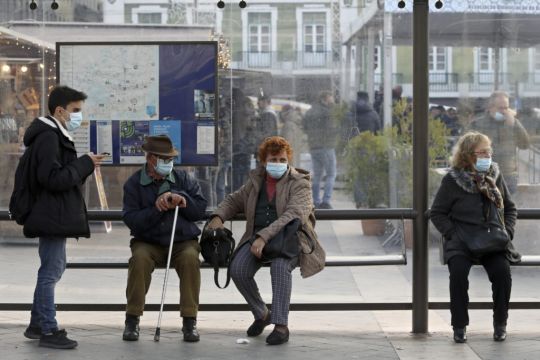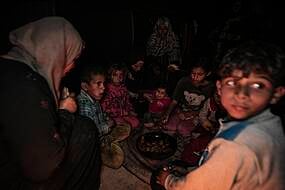The global risk from the omicron variant of coronavirus is “very high” based on early evidence, the World Health Organisation has said.
It said the variant could lead to surges with “severe consequences”.
The assessment from the UN health agency, contained in a technical paper issued to member states, amounted to WHO’s strongest, most explicit warning yet about the new version that was first identified days ago by researchers in South Africa.
It came as a widening circle of countries around the world reported cases of the variant and moved to slam their doors in an act-now-ask-questions-later approach while scientists race to figure out just how dangerous the mutant version might be.
Japan announced it is barring entry to all foreign visitors, joining Israel in doing so.
Morocco banned all incoming flights.
Other countries, including the US and members of the European Union, have moved to prohibit travellers arriving from southern Africa.
WHO said there are “considerable uncertainties” about the omicron variant.
But it said preliminary evidence raises the possibility that the variant has mutations that could help it both evade an immune-system response and boost its ability to spread from one person to another.
“Depending on these characteristics, there could be future surges of Covid-19, which could have severe consequences, depending on a number of factors, including where surges may take place,” it added.
“The overall global risk … is assessed as very high.”
The WHO stressed that while scientists are hunting evidence to better understand this variant, countries should accelerate vaccinations as quickly as possible.
While no deaths linked to omicron have been reported so far, little is known for certain about the variant, including whether it is more contagious, more likely to cause serious illness or more able to evade vaccines.
Last week, a WHO advisory panel said it might be more likely to re-infect people who have already had a bout with Covid-19.
Spain on Monday became one of the latest countries to report its first confirmed omicron case, detected in a traveller who returned Sunday from South Africa after making a stopover in Amsterdam.
While the vast majority of infections recorded around the world have been in travellers arriving from abroad, cases in Portugal and Scotland have raised fears that the variant may already be spreading locally.
“Many of us might think we are done with Covid-19.
“It’s not done with us,” warned Tedros Adhanom Ghebreyesus, WHO’s director-general.

Days after the variant sent a shudder through the financial world nearly two years into the pandemic that has killed over five million people, markets had a mixed reaction on Monday.
European stocks rebounded and Wall Street opened higher, while Asian markets fell further.
US President Joe Biden called the omicron variant a cause for concern but “not a cause for panic”.
He said he is not considering any widespread US lockdown and instead urged mask-wearing and vaccinations, even as a federal judge blocked his administration from enforcing a requirement that thousands of health care workers in 10 states get the jab.
The infections have underscored the difficulty in keeping the virus in check in a globalised world of jet travel and open borders.
Yet many countries are trying to do just that, against the urging of the WHO, which noted that border closings often have limited effect and can wreak havoc on lives and livelihoods.
Some have argued that such restrictions can buy valuable time to analyse the new variant.
While the initial global response to Covid-19 was criticised as slow and haphazard, the reaction to the omicron variant came quickly.
“This time the world showed it is learning,” said EU Commission President Ursula von der Leyen, singling out South African president Cyril Ramaphosa for praise.
“South Africa’s analytic work and transparency and sharing its results was indispensable in allowing a swift global response.”

Late last week, Ms von der Leyen successfully pushed the 27-nation EU to agree to ban flights from seven southern African nations, similar to what many other countries are doing.
Cases have been reported in such places as Canada, Germany, Britain, Belgium, Denmark, the Netherlands and Portugal, where authorities identified 13 omicron infections among members of the Belenenses professional soccer team.
Taking no chances, Japan, which has yet to detect any omicron cases, reimposed border controls that it had eased earlier this month.
“We are taking the step as an emergency precaution to prevent a worst-case scenario in Japan,” prime minister Fumio Kishida said.
Israel likewise decided to bar entry to foreigners, and Morocco said it would suspend all incoming flights for two weeks.







